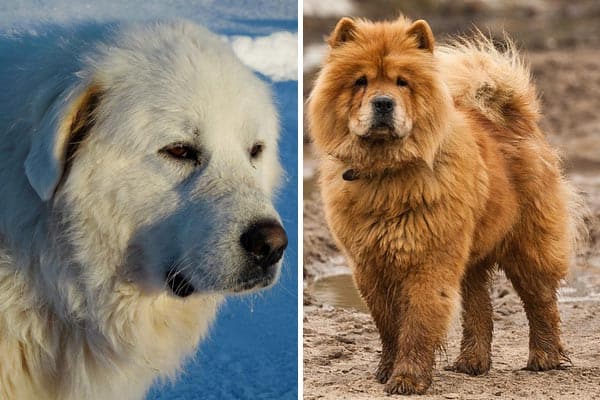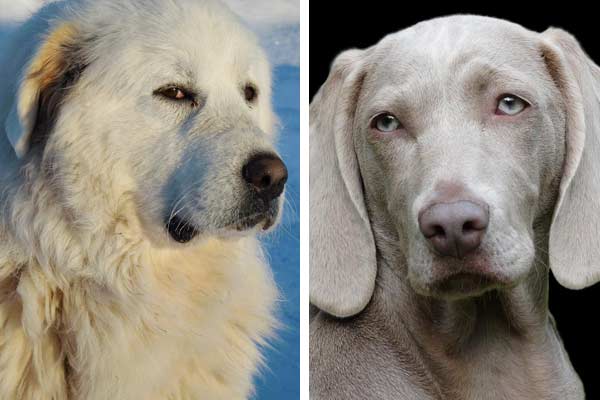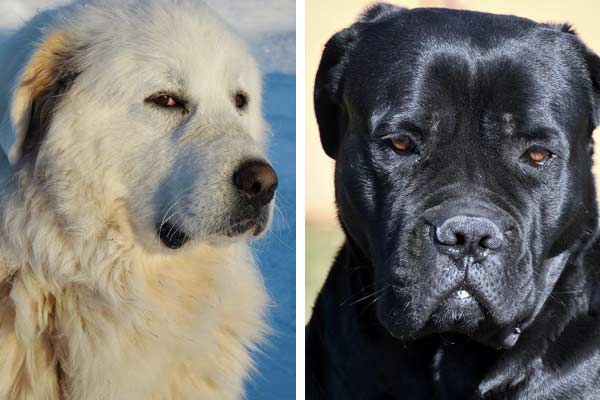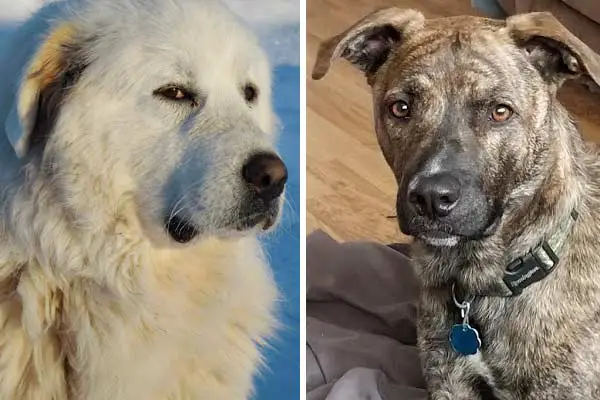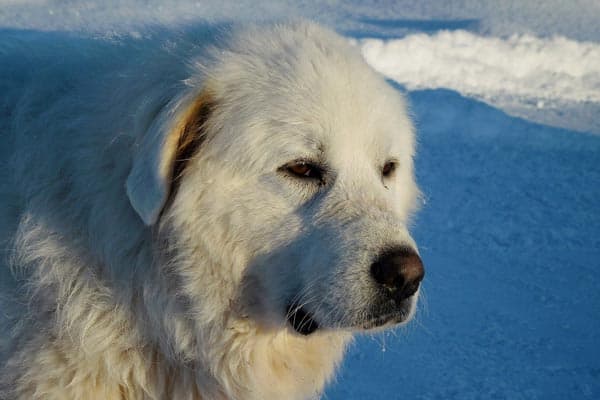Why Do the Great Pyrenees Howl? Here Are 9 Reasons
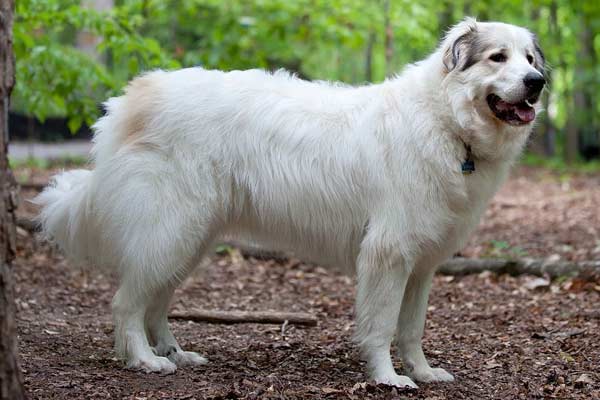
If you own or are considering owning the Pyrenees, you might wonder why they howl so much. This is a characteristic that distinguishes the breed. Here’s more information!
Howling serves several purposes. The great Pyrenees howl for various reasons, including loneliness, boredom, fear, and Pain. Their howls are also a response to high-pitched sounds and scaring off predators. Separation anxiety or frustration from not having enough exercise can also lead to frustration.
You must understand the triggers and take preventative measures for your Great Pyrenees to stop this behavior.
What Causes the Great Pyrenees To Howl?
Here are some reasons that cause the great Pyrenees to howl
1. Due to Curiosity
It is a breed that is curious about everything around it and wants to know everything happening. A Great Pyrenees howls for a different reason than a lonely or bored dog.
They will howl if they hear strange noises like fireworks or thunder. And react to identify the type of noise. Other dogs will also howl if they see something unusual, such as other dogs or people entering their territory.
2. Stress
Most Great Pyrenees howl when stressed, but they do so for various reasons.
An overwhelming crowd or loud noise can cause stress, such as feeling lonely. You should investigate the cause of your dogs’ howling as soon as possible. Observe them and note any changes in their behavior or body language that may show stress.
Help your great Pyrenees relax and stop howling once you figure out what’s causing the stress. Here are a few tips:
Playtime in your backyard or a long walk before bedtime can keep them calm
During the day, spend time with them so they do not feel neglected while you are at work or school.
3. Frustration
You may have the frustrated Pyrenees if he howls for no apparent reason or for an extended period. Leaving him alone too long can result in him becoming aggressive or if he feels his territory is being threatened.
Consider talking to your veterinarian about behavioral training options if this occurs and bothers you. They can help him learn to communicate without leaving them alone for long periods.
4. Loneliness
Your Great Pyrenees may howl out of loneliness if left alone for a long time. They thrive on companionship because they are social creatures.
For your dog’s sake, ensure that you give him enough attention and exercise at home.
You may also consider buying another dog as a companion for your Great Pyrenees. Two dogs may not be enough to prevent howling behavior.
5. They Are in Pain
When Great Pyrenees are in Pain, they howl. Howling is a way for them to tell you they’re hurting, scared, or needing something.
You should consult a veterinarian if you have concerns about your dog’s health. To relieve their Pain, they may need medications or treatments.
When interpreting their behavior, it’s essential to consider the context. It may signify that your dog is lonely or scared if it’s howling while you are away. Turn on a radio or TV show in another room, so they have some noise to keep them company.
6. Boredom
Leaving your dog alone in the house all day may cause it to howl out of boredom. Provide your dog with toys and activities to keep them entertained to prevent this from happening.
Enjoy your dog’s company by taking him for walks or playing with him in the yard.
Every day, a dog needs mental and physical stimulation. Using this method, for instance, will reduce howling.
7. Lack of Exercise
The dog can start howling out of frustration if it does not get enough exercise. Due to its high energy levels, they need to release it.
Provide plenty of opportunities for your dog to run and play to prevent this. Walking, running, and going to the park are great ways to do so.
As well as physical stimulation, your dog needs mental stimulation as well. The best way to do this is to play games with them or to give them puzzle toys to play with.
8. Separation Anxiety Is Affecting Them
The great Pyrenees are particularly prone to separation anxiety, a common problem among dogs. Having this trait makes your Great Pyrenees an excellent farm dog, but it can cause stress when you leave the house for long periods or go on an overnight trip.
Early socialization can help cut separation anxiety in new puppies by teaching them to feel comfortable being alone.
If you suspect your dog suffers from separation anxiety, talk to your veterinarian about treatment options.
9. They Find It Fun
Howling is a unique way Great Pyrenees dogs communicate with their owners. Some people find it challenging to understand this behavior, but it’s pretty simple!
Great Pyrenees dogs howl when they are happy and when they are sad. They howl when they’re excited about something, such as being outside or playing with their favorite toy. They also howl when they want attention from their owners.
Although Great Pyrenees sometimes can be a little loud, they don’t intend to annoy anyone. It’s just a matter of communicating with you.
How Should You Handle Great Pyrenees Howling?
To determine why your Great Pyrenees is howling, you’ll need to look at the situation from both sides: your dog and their surroundings.
It can be stressful for your dog if you have recently adopted them or brought them into a new home. If they have come from an abusive or neglectful home, they may have learned howling gets attention or communicates with other dogs.
Other reasons may include loneliness, fear, or boredom. Spending time with them and giving them plenty of attention will help them feel comfortable in their new home.
It is possible to discuss environmental factors if this doesn’t work or does not apply to your situation.
The cause of howling is often loneliness or boredom; ensure your puppies have plenty of toys to play with.
Also, ensure your dogs get plenty of playtimes together if you have another dog living with you (especially one who lives outside).
Ensure your dog is healthy. A sick or injured Great Pyrenees may howl because they are in Pain and need help.
Talk to your veterinarian if you suspect your dog may have separation anxiety. Try desensitizing your dog to high-pitched sounds if your dog howls because they hear them.
It is possible to reduce or stop your dog’s howling behavior by addressing the root cause.
Remember that change won’t happen overnight, so be patient.
With patience, you can overcome your dog’s problem behaviors and help him live a happy and healthy life.
Are the Great Pyrenees Louder Than Other Large Dogs?
Despite their size, Great Pyrenees can be louder than other large dogs. Despite their loud howl, the Great Pyrenees are not known for barking like other dogs.
The Great Pyrenees is popular among people for this reason. They are loving and loyal companions who enjoy being around people and other animals. Their intelligence and gentleness make them great family pets.
As well as protecting their families, they are also protective of the animals they care for. They make good watchdogs for your property if you live somewhere where you might have trouble keeping an eye on everything all the time (like a large yard).
When a Great Pyrenees howls, it’s because they want something: attention, playtime, or food.
Understanding why the Great Pyrenees might howl and what to do about it is important if you own one. It is possible to reduce or stop your dog’s howling by addressing the root cause.

